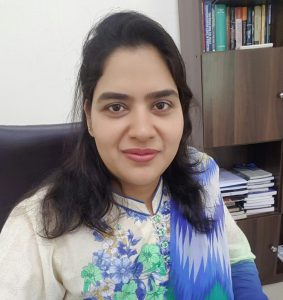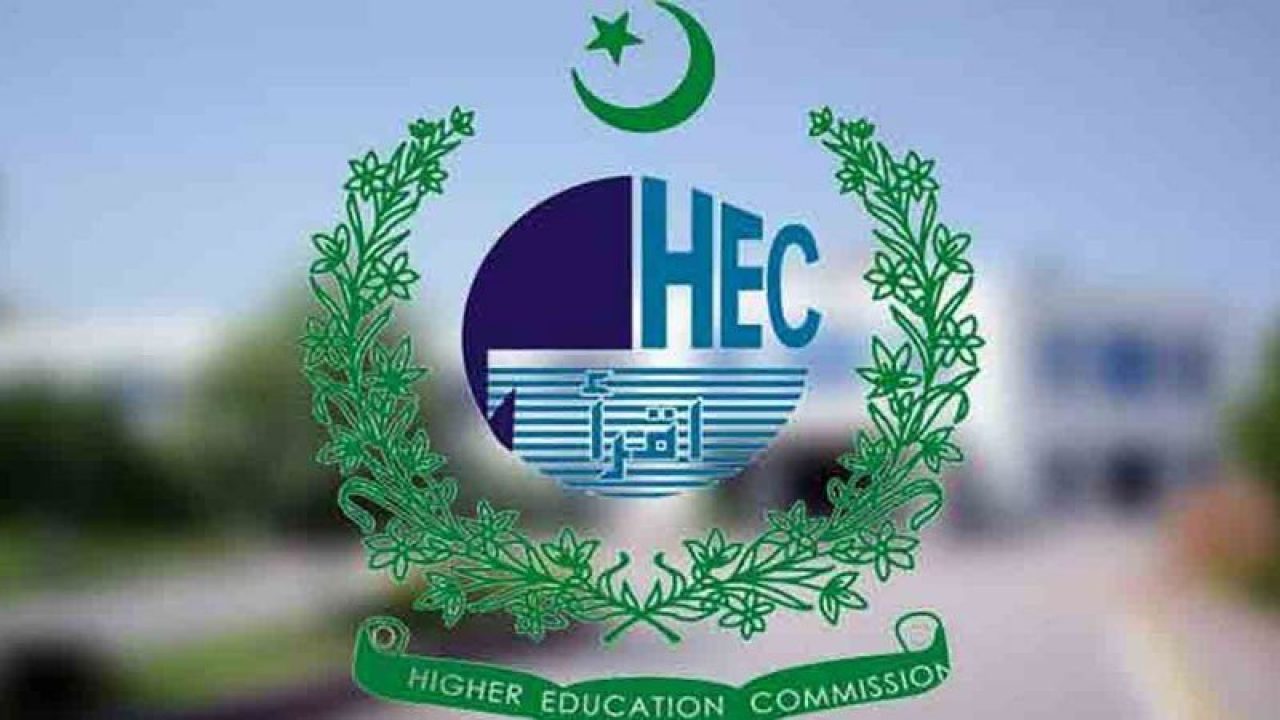Dr Lubna Zaheer
In May 2018, the then federal government appointed Dr Tariq Banuri as the Chairman of the Higher Education Commission of Pakistan (HEC). He was due to step down in May 2022 after completing a four-year term, according to the HEC Ordinance. However, in March 2021, the federal government issued a presidential ordinance. Amended the Higher Education Commission Ordinance. And reduced the term of office of the Chairman of the Commission from four years to two years. The government applied the new law retrospectively and dismissed Dr Banuri and sent him home.
According to reports, government and academic circles had some complaints against Dr Banuri. The National Accountability Bureau (NAB) had also launched an investigation against him. Dr Banuri protested against this decision of the government and went to the High Court. The case remained pending in the court for several months. Now, a few days ago, the Islamabad High Court, while ruling in favor of Dr Banuri, reinstated him as the chairman of the Commission.
The HEC Pakistan is a very important national institution. Its duties include overseeing all public and private universities in the country. The Commission is responsible for promoting higher education in Pakistan, improving the quality of education, formulating policies on higher education, enforcing education policies and performing other important duties. The way the head of this important national institution was removed 10 months ago, overnight, cannot be supported. Just like the bed of a ruling government cannot be supported to roll up its sleeves overnight. Every government has the right to complete its constitutional term. Similarly, the heads of national institutions also have the right to complete their term of office.
News related to the resignation and reinstatement of the Chairman HEC continued to adorn the media from time to time. However, no one has taken into account the fact that we are being ridiculed all over the world for sending the head of a very important national institution home in an insulting manner. No one even calculated how much damage was done to the education sector by the way the Higher Education Commission was run on a part-time (ad-hoc) basis for ten months.
The court has now issued a summary judgment. It is unknown at this time what he will do after leaving the post. So far, the mystery has not been resolved that the court has only declared the decision to remove Dr Banuri illegal or has also repealed the law to reduce the tenure of Chairman HEC by two years. It is hoped that a detailed decision will answer these questions.
After assuming office, Dr Tariq Banuri has become active again. A few days ago, Dr Niaz Ahmad Akhtar, Vice Chancellor of Punjab University invited him to Punjab University. The purpose was to enable the Chairman HEC to brief the faculty and heads of various departments of Punjab University on the policies and vision of the Commission side by side listen to the problems faced by the teachers. This scholarly session lasted for about two hours in Al-Razi Hall of Punjab University. The Vice Chancellor of Punjab University had also invited the Vice Chancellors of other government universities. Dr. Banuri briefed the teachers on the aims and objectives of the Commission and its plans in a very comprehensive manner. The teachers were given an opportunity to ask questions of Dr Banuri. The teachers asked many critical questions and some of the complaints regarding the commission were also heard by Dr Banuri.
Dr Banuri said after assuming office in 2018, he changed many policies of the Commission. Special changes were made in the policy regarding recruitment and postings for various posts in the Commission. He spoke at length on the poor quality of education and poor quality research in Pakistan. They said the condition of our research is very bad. There are innumerable research journals. Numerous research articles are published in them. It is said with great regret that the practical effects of the research being done all over the world are visible. But our research is ineffective. Research journals, although few in number, should be impactful. Dr. Sahib was well aware that research papers are published in journals in exchange for huge sums of money. He also expressed dissatisfaction over the fact that the development of the teacher has been linked with the publication of ten to fifteen research articles.

Dr Tariq Banuri is also concerned about the poor quality of his PhD. It was said that the policy of blindly distributing degrees has disgraced our PhD degree. He also condemned the unplanned process of awarding degrees. He pointed out a very important issue. He said that teaching is not given much importance in our country. There is no standard for teaching quality. The Higher Education Commission has been distributing the Best Teacher Award for years. The applications received by the Commission also mention research articles and national, foreign conferences, etc., but do not refer to the teaching of the teacher.
Dr Banuri also explained the move to abolish private BA and MA. He said that the new graduate policy has been formulated with the idea that young people should be aware of various sciences instead of just getting a degree. Become skilled, keeping in mind the needs of the market. Dr. Sahib also mentioned the importance of accountability. But he described it as a very difficult process. Citing an example, he said that it happened that a university refused to be accountable to the commission. When the commission exerted pressure, orders were received from a high office in Islamabad not to question the university concerned. They said what should the commission and chairman do in such a situation?
The fact is that Dr Banuri expressed his remorse very well. Glad to know that they are well aware of the problems of higher education in Pakistan. His behavior is also commendable as he listened to the sharp questions and critical comments of the teachers with great patience and forbearance. But the problem is that these are the days of preaching in Pakistan. Ministers, advisers, parliamentarians, journalists, TV anchors, or other prominent figures, all seem to be giving advice. Dr Banuri’s speech was heartfelt, but it also had a preaching tone. Listening to him, I kept thinking that what practical steps he has taken as chairman to solve the problems that Dr. Sahib is fully aware of. ?
For instance, Dr Tariq Banuri spoke at length about the poor research in Pakistan and the indiscriminate distribution of higher degrees. This is not a cover-up. People in the education sector have been lamenting these issues for years. Academics often point out that we have very poor research articles written (and sometimes written). These articles are widely published in the recognized journals of the Higher Education Commission. It is a well-known fact that the editors of many magazines make it a condition that their names be included in the article as authors. The Commission has linked the development of university teachers with the publication of ten, fifteen research articles.
Therefore, the publication of research articles is a matter of life and death for teachers. Many authors are forced to bow to the editors’ orders. It is also a common story that a certain official of such and such a government university would publish many articles of such and such teachers in the journals published in the university in days and weeks in order to qualify them for promotion to the next grade. Is. Sometimes a special issue of the journal is also published for this purpose. The rules and review procedures laid down by the Higher Education Commission for publishing these articles are ignored. Thus many honest and capable teachers fall behind these influential people in the race for development.
Dozens of teachers say they are against the abolition of this right and academic corruption. E. C have complained. But it does not creep into the ears of the commission. The story has now reached Parliament. After regular discussions in the Senate Standing Committee on Education and Vocational Training, a subcommittee has been set up. Former IG Police Senator Rana Maqbool is the head of this committee. Rana Sahib is considered as an expert in investigation. The sub-committee has started auditing the research articles published in the journals of five reputed public universities of Pakistan. The report of the committee will be submitted to the chairman of the standing committee soon. Let’s see what revelations come out in this investigative report.
The matter should not have reached the Senate. This is the job of the Higher Education Commission. However, due to the incompetence of the commission, the matter has reached the upper echelons.
The stories of writing and publishing faulty research articles are bringing Pakistan into disrepute all over the world. A few months ago, the international website Reaction Watch Database identified dozens of research articles, a masterpiece of plagiarism and academic corruption of Pakistani professors. Seven papers of a professor of Zoology were seized. But the commission did not make any inquiries. Just yesterday, Times Higher Education published an article on academic corruption of Pakistani professors. Reading this article makes me bow my head in shame.
Good professors around the world write one or two research articles a year. We also have professors who write and publish over a dozen articles in a few months. Some professors are proud to say that they have written and published over a thousand articles in their thirty-five year career. That is, one article every ten to twelve days. There are also stories of forgery that the authorities of some journals have created fake e-mail accounts in the name of foreign professors in order to undergo the peer review process devised by the commission.
Dr Tariq Banuri is well aware of all these forgeries taking place in Pakistan. He also pointed out the dishonesty in the name of research at Punjab University. The question is what steps Dr. Sahib has taken to prevent all these defects. During his tenure, however, the Commission closed some magazines. Degraded something. However, these measures are like cumin in the mouth of a camel. Manipulation of research articles is rampant. The Commission itself has approved a number of defective papers.
The same is true of PhD. Dr. Banuri says that the monkey distribution of doctoral degrees has disgraced our degree all over the world. I remember a few years ago the chairman of Punjab Public Service Commission also sent a letter to the Governor of Punjab The very poor quality of PhD degrees should be rectified. It was written in the letter that the mental capacity of the candidates with higher degrees is such that they are unable to reveal the title of their research paper in the interview. Even after this tragic revelation, the Higher Education Commission did not stop the indiscriminate distribution of degrees in public and private universities. The fact is that most of the university professors are on a mission to supervise as many theses as possible. In such a situation, who cares about quality?
The story of a professor of International Islamic University Islamabad has been in the news for some time now. He received his Ph.D. from a local university five years ago. Exactly five years later, he set a record by completing five PhDs in various disciplines (including psychology and finance). These and many such stories have become very common. Be it the Higher Education Commission or any regulatory body. In the hands of these institutions is the staff of law. This stick should be moved to correct the defects. Instead of preaching and advising against corruption in the field of research, the chairman should take strict action. Those involved in counterfeiting should be arrested.
In his address, the Chairman rightly said that teaching is not valued in our education system. Teaching is rarely mentioned in the promotion to the next grade, even in the distribution of the Best Teacher Award. The question is, how difficult is it for an authoritative body like the Higher Education Commission (which has a huge budget and infrastructure) to encourage classroom performance and teaching? What is the barrier to creating a new proforma and scale for the Best Teacher Award?
Dr Banuri said that after assuming office, he reviewed the policies of the Commission. Changed many policies. He has abolished the requirement of M.Phil and Ph.D for recruitment to all the posts in the Commission except for a few administrative posts. The contradiction is that in the time of Dr. Sahib, strict condition of M.Phil degree has been imposed to be a part of visiting faculty of universities. On this scale, most of the eminent journalists, columnists, playwrights, directors, are not qualified to teach in the media department of the universities. The same is true of other sectors. For example, according to the scale of the commission, the well-known religious scholar Maulana Taqi Usmani is not qualified to teach in the visiting faculty of the Islamic department of any university. Is this policy correct and justified?
Dr Sahib is a renowned educator. There is no denying of his competence. However, educationists complain that Dr Banuri is reluctant to involve stakeholders in the policy-making process. I received feedback from dozens of professors on a previous column on the Higher Education Commission. They include three former and current serving vice-chancellors. The trio also termed Dr Sahib’s (and controversial) undergraduate and PhD policies as non-consultative.
I pray that the court, in a detailed judgment, may issue an order for the return of Dr Sahib during the period of suspension so that he as the Chairman of the Higher Education Commission can take practical steps to address the shortcomings of which he is well aware.

— Dr Lubna Zaheer is Associate Professor at the School of Communication Studies, University of the Punjab. She is regular columnist and writes on multiple issues.

